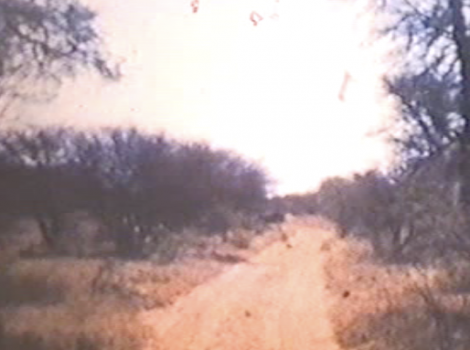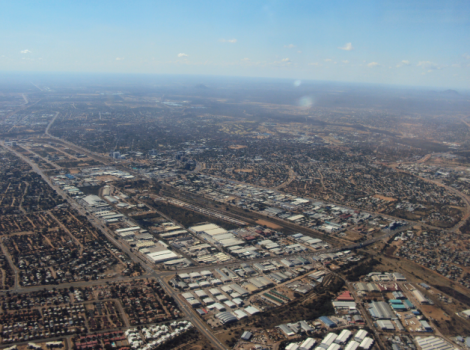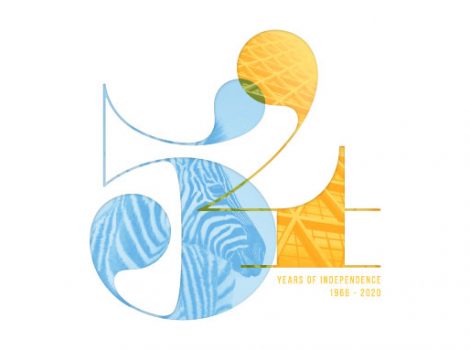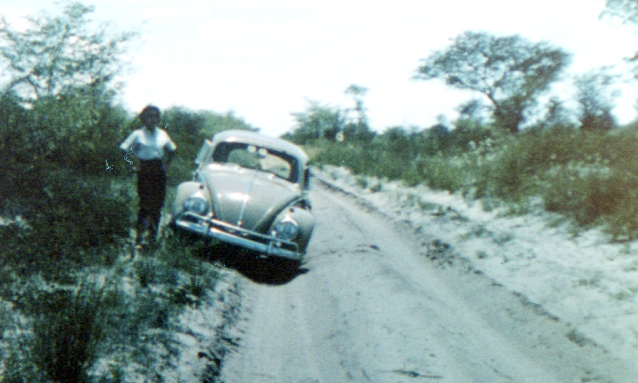
The images in this article are of a vehicle that the police had to recover while we were in Maun, as part of their normal duties. My father always discharged these duties irrespective of the cause, but if he considered that the incident was caused through negligence or people not listening to advice given, he would tell them very forcibly that their behaviour was out of order. Unusually, these images are in colour.
The incident in these images arose when two young ladies, who were looking for a bit of excitement, decided to drive from Francistown to Maun in a VW Beetle to see the swamps, despite having been told that the road was barely passable in a four-wheel-drive vehicle.
Undeterred, they ignored the advice and commenced their journey. Needless to say, they got stuck in the sand and needed rescuing. A message was relayed to Maun, either by a passing vehicle or a local villager would have made the journey on foot. The police successfully recovered the pair; I am not sure what happened to their vehicle.
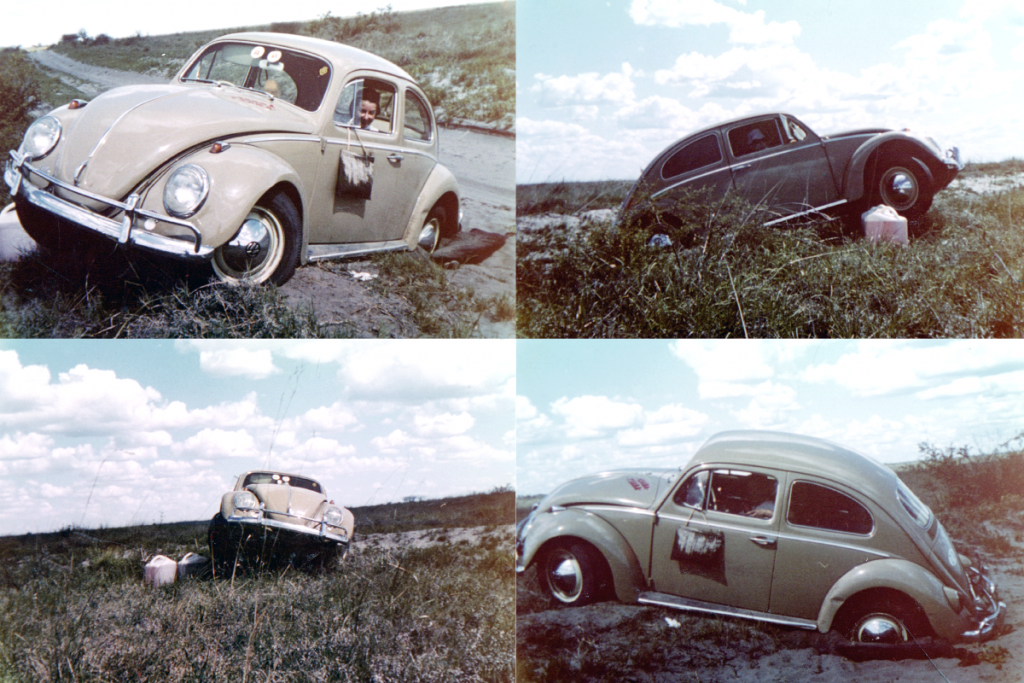
My father attended a number of similar incidents during his tenure, but there was one incident that annoyed him particularly and he would become quite animated when describing it.
A South African had driven up to view the wildlife of the delta, and he thought he had an ingenious solution to the unbearable Ngamiland heat. His solution to the problem was to transfer the controls for his land-rover onto the roof, and he would sit on the roof in the cool wind while driving. My father took one look at this, ruled the vehicle unroadworthy and explained that the vehicle would be going no further.
The gentleman then removed these controls so he could continue his journey, and because the vehicle was now roadworthy, was allowed to proceed. He drove off, and once he considered himself to be at a safe distance from Maun, re-instated his roof controls. Sadly, and as predicted, he could not control the vehicle on the Ngamiland roads, the vehicle rolled and the driver was injured, with a suspected broken back.
Fortunately for him, a local villager found him and walked back to Maun to report the incident to the police. Due to lack of roads, GPS systems etc the villager came back with the police to show them the location. My father assessed the situation and went back to Maun to arrange for the driver’s recovery. This entailed a Bedford lorry with many mattresses, the local doctor to help carefully move the victim onto the truck and a very patient and careful truck driver to drive the truck back to Maun without aggravating a suspected broken back.
Apparently, the process took about 2 days. On arrival in Maun, he was evacuated by the South African Airforce to South Africa for treatment, as the local hospitals did not have the facilities necessary to deal with such complicated injuries. He was fortunate to recover, but he then made a very big mistake.
He thought the correct course of action was to return to Maun to thank my father for helping him. My father didn’t see it that way and he made it very clear to this gentleman that he was not welcome in Bechuanaland Protectorate (apparently my father was incandescent with rage). My father’s only regret over this incident was that he didn’t have this gentleman deported, as he considered him a danger not only to himself but those around him too. What really incensed my father was that formal police advice was ignored, and as a consequence others, not least the villager who walked through the bush with all the wildlife to raise the alarm, were put at considerable risk. And many were inconvenienced, including all those wanting to see the town doctor and the normal users of the mattresses. The facilities available in those days for location finding were primitive when compared with today’s technology.
The irony of this, and many similar such incidents, was it was the South Africans who frequently got themselves into trouble thinking they understood the bush, and irrespective of the horrors of apartheid, found themselves beholden to the goodwill, knowledge and skills of the Batswana people to save their lives. Considering what was happening south of the border, it is a credit to the Batswana they they extended this goodwill to all visitors to their country during this difficult period.
Article and words by Ian Brooks
Ian’s father, Donald Brooks arrived in Maun in early 1962, leaving four years later in 1966. Brooks Snr was a police officer, trained in the UK, but working in the Colonial Service. His brief on being transferred to Maun was to sort out the ‘w’ element; there was a perception that there was insufficient regulation, particularly the hunting of the wild animals, and his task was to bring this under control.
Ian and his siblings were children while in Bechuanaland Protectorate/ Botswana; the younger 3 children were born in Bechuanaland Protectorate. The context is a combination of his own memory of life in Maun as a child, as well as various conversations with his parents over the years about the photographs and life in Botswana while they were there (1958 to 1968).

